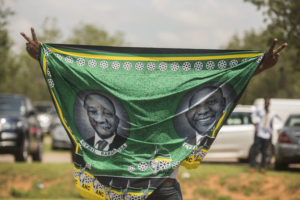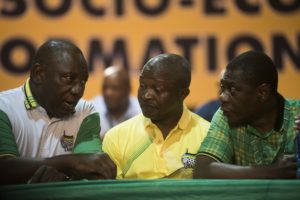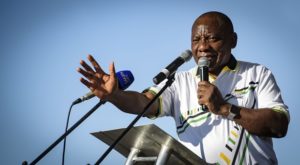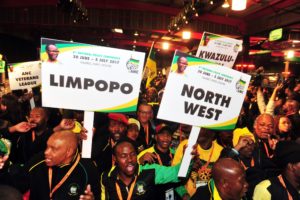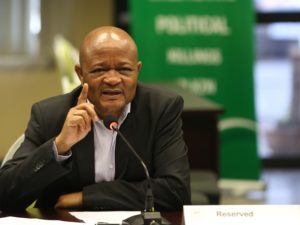Mondli Makhanya: Seismic shifts are coming
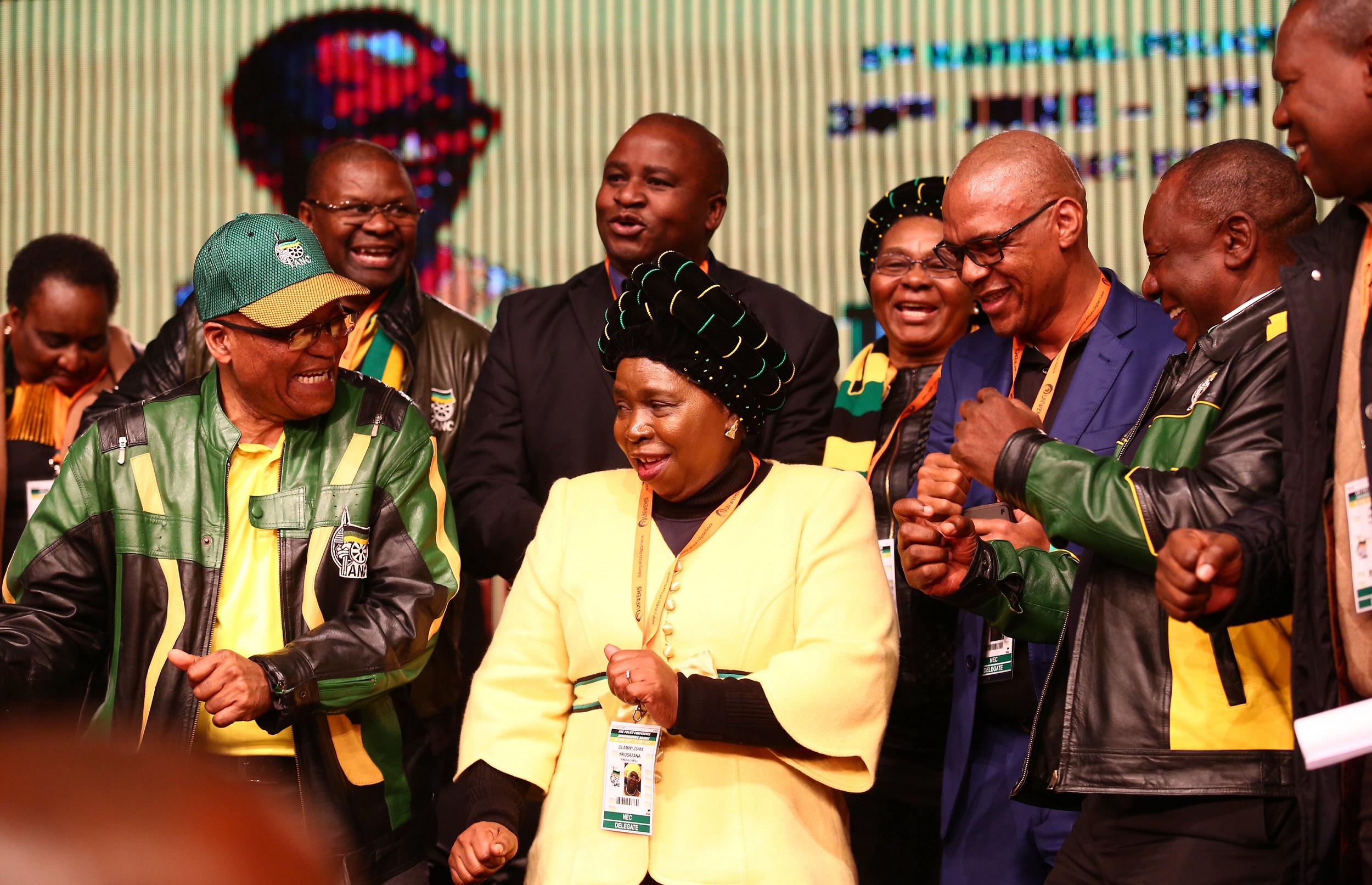
JOHANNESBURG, SOUTH AFRICA – JULY 05: President Jacob Zuma and Nkosazana Dlamini-Zuma sing and dance during the African National Congress (ANC) 5th national policy conference at the Nasrec Expo Centre on July 05, 2017 in Johannesburg, South Africa. 3500 delegates from branches across the country gathered for the conference to discuss the party’s policies going into the elective conference in December, where changes and new policies will be ratified. (Photo by Gallo Images / The Times / Masi Losi)
It cannot be right that every time the ANC goes to an elective conference, it sheds a piece of itself, former president Kgalema Motlanthe once remarked shortly after the party’s national conference in 2012.
What bothered Motlanthe was the emergence of a trend that had begun in the months that followed the 2007 Polokwane conference when senior members led a walkout that gave birth to the Congress of the People. In 2013, this was followed by expelled ANC Youth League leadership forming the Economic Freedom Fighters (EFF) and taking a good portion of the ANC’s membership and support base with them.
In addition, those on the losing side were purged or sidelined, even if they remained ANC members. This rendered them as good as nonexistent in the party.
The 2008 split, led by Mbhazima Shilowa and Mosioua Lekota, made it acceptable for a major breakaway and obviously hurt more than Bantu Holomisa’s pioneering split in 1997. By the time Julius Malema and his team lured thousands of ANC members, mostly young, out of the ANC, it was cementing a trend.
For Malema it was a massive psychological jump, as he had declared that he would never abandon his ANC home, regardless of the outcome of the disciplinary charges that had been brought against him and his executive team.
“Whatever happens, we are ready for that,” he had proclaimed on the eve of the judgment by the National Disciplinary Committee (NDC). “People should know that, if we are fired tomorrow, our blood will remain black, green and gold … As a disciplined member of the organisation, you must accept the decision. Nobody will ever challenge the decision of the organisation.”
He would later make a desperate plea to the delegates attending the 2012 Mangaung conference for the NDC’s decision to be overturned. In a letter written by himself, the youth league’s national spokesperson Floyd Shivambu and secretary-general Sindiso Magaqa, pledged that they remained “loyal supporters and members of the ANC willing to be guided under its principles, Constitution, values and vision to achieve all Freedom Charter objectives”.
Its power is felt everywhere
It is now documented history that the ANC’s leaders did not even bother to table the letter to delegates. The party’s secretary-general, Gwede Mantashe, blithely dismissed it with the statement that it had arrived too late to be added to the programme. Thus was the fate of Malema sealed. Thus the ANC shed a bit more of itself. And thus was born the EFF.
When current Gauteng education MEC Panyaza Lesufi appealed to the party to make peace with the youth league because he could see for himself the impact that the nascent party was making on the ground, he was mauled by his comrades, who believed that Malema was all noise.
How they must regret it now. The EFF went on to bite a chewable chunk of the ANC’s flesh in the 2014 general election. In fact, the party’s showing in Gauteng nearly deprived the ANC of an outright majority and the ability to govern the province on its own. It delivered a deadly blow in 2016 when it played a decisive role in the ANC’s loss of three big metros and the placing of these in the hands of the DA.
Whether or not you agree with the EFF’s policies, tactics or Malema’s weight-loss regime, you will agree that it has been the most influential factor in redesigning the post-1994 political landscape. Its presence has shaken up not only the ANC, but the opposition, business and the civil society sector. The EFF may not be in power anywhere, but its power is felt everywhere.
The loss of the metros and the resultant realisation by people outside the Western Cape that the sky does not come crashing down if you are not governed by the ANC will be a big factor in the outcome of the 2019 general election.
But long before 2019, the ANC will have to worry about the trend that Motlanthe warned about. Right now, the run-up to the December national conference is turning out to be an ugly affair. The campaign is characterised by hatred instead of rivalry. In fact, you will find greater tolerance and accommodation of the opposition parties than there are among ANC colleagues and comrades.
It is difficult to see how the different camps – particularly the two that seem dominant at the moment – will live with one another after December. Such are the levels of animosity that the reality of a split or several smaller splinterings is being discussed widely in the ANC. It has now moved from being a matter of speculation to being a real fear.
Looming over the ANC is also agitation from members of the SA Communist Party (SACP) to contest the election by itself. The outcome of the December conference will be a major determinant of whether or not this goes ahead. It will be hard-going for the SACP to build its own brand and raise funds for a party with this particular C-word in its abbreviation. But it will bite some solid flesh from the ANC, further worsening its woes.
Whatever happens in December, one thing we should prepare for is a mega-redrawing of the political landscape.
– Mondli Makhanya is editor of City Press.
* This article was first published in City Press on 5 August 2017.
